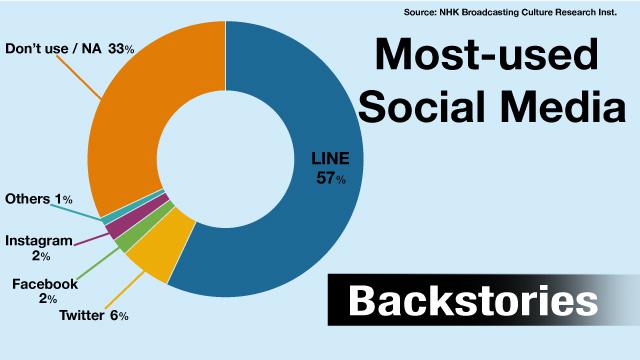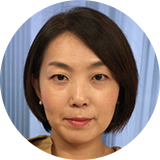It came to particular prominence after the US presidential election of 2016, in which information filtering by social media was linked by some to the polarization of public opinion and, eventually, to social division.
Turning to Japan, a survey by the NHK Broadcasting Culture Research Institute has found that young people today are less interested in politics, economics and society. The report also says they tend to be passive recipients of information and aren't keen to go beyond what comes to their attention by chance.
Low levels of interest in politics, economics and society
The survey was aimed at finding out how social media is affecting Japanese society. A questionnaire was sent to 3,600 randomly selected men and women, aged between 16 and 69, across the country. 2,369 people, or about 65.8 percent, responded.
The survey classified information into 9 fields and asked which ones people seek out. The respondents under 20 years of age who said they mainly sought out information on politics, economics and society was just 22 percent. That number was 36 percent for those in their twenties. On the other hand, younger generations showed keen interest in information related to hobbies.

LINE News and social media
Asked which media they use for information on politics, economics and society, 88 percent of all respondents said TV, while 58 percent said newspapers. But among respondents aged between 16 and 19, 58 percent answered LINE News (see below), and 44 percent said they use other social networking services.
LINE News: Stories from newspapers and television broadcasters published via the LINE messaging platform.

Nearly half of respondents unaware of sources of online news
When asked about the origin of the news they read online, around 50 percent of those in their 40s or younger responded that they don't pay attention to the source or don't know.

Younger people are passive and selective recipients of information
Asked how they feel about information they receive daily, over 50 percent of respondents aged between 16 and 19 and in their twenties said that they don't want more than what they happen to find when it comes to news on politics, economics and society. This shows that younger people tend to be passive recipients of such information.

On the other hand, 61 percent of respondents aged between 16 and 19 said that they want to get information only on subjects they like and that they want to know about other opinions only if they agree.
This means that the lower the age group, the narrower their interests. The results also showed that the higher age groups had a broader range of interests.

Is the filter bubble growing in Japan?
Takayuki Hotaka, a researcher at the NHK Broadcasting Culture Research Institute, says the survey has confirmed that the sources of the information people consume vary greatly depending on age and that it's a phenomenon caused by the spread of social media among younger generations.
He also says that as people spend more time online, the amount of information available to them has increased significantly. In fact, the survey shows that more than 80% of people of all generations feel they are living with "information overload."
Hotaka says this has resulted in more people seeking out only information they are already interested in. They tend to see and share views with which they agree. He feels this sense of "info-glut" is gradually affecting people's ways of thinking and even what they do on a daily basis.
Hotaka says, "Japanese internet users could already be in a filter bubble without even knowing it.".

